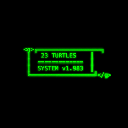 |
|
 |
|
 |
|
 |
|
 |
|
 |
|
 |
|
 |
|
 |
|
 |
|
 |
|
 |
|
 |
|
 |
|
 |
|
Filecoin is building a marketplace for data services — with the first service being storage — on top of the InterPlanetary File System (IPFS).

Filecoin builds a marketplace for data services on top of the InterPlanetary File System (IPFS), starting with storage. Filecoin uses deals that price storage based on a market of providers instead of fixed pricing. A storage deal is like a contract with a service level agreement (SLA) — users pay fees to providers to store data for a specified duration.
Filecoin builds a marketplace for data services on top of the InterPlanetary File System (IPFS), starting with storage. Filecoin uses deals that price storage based on a market of providers instead of fixed pricing. A storage deal is like a contract with a service level agreement (SLA) — users pay fees to providers to store data for a specified duration.
To keep data safe, Filecoin uses a cryptoeconomic incentive model to regularly verify the storage with zero-knowledge proofs. Filecoin rewards storage providers with FIL, the network's native token, to incentivize them to participate in deals. If they fail to provide reliable uptime or act maliciously against the network, storage providers are slashed.
To keep data safe, Filecoin uses a cryptoeconomic incentive model to regularly verify the storage with zero-knowledge proofs. Filecoin rewards storage providers with FIL, the network's native token, to incentivize them to participate in deals. If they fail to provide reliable uptime or act maliciously against the network, storage providers are slashed.
Filecoin users pay a retrieval provider to fetch data. Unlike storage deals, which involve transactions onchain, retrieval deals use payment channels to settle payments offchain, enabling faster retrieval.
Filecoin users pay a retrieval provider to fetch data. Unlike storage deals, which involve transactions onchain, retrieval deals use payment channels to settle payments offchain, enabling faster retrieval.
Besides storage and retrieval, Filecoin aims to offer an open market where compute power can be contracted to run over data, providing more efficient alternatives to traditional centralized systems.
Besides storage and retrieval, Filecoin aims to offer an open market where compute power can be contracted to run over data, providing more efficient alternatives to traditional centralized systems.
Key protocol upgrades to enable compute-over-data services include smart contracts (the Filecoin Virtual Machine - FVM) and scaling (Interplanetary Consensus - IPC). The launch of the FVM in March 2023 brought Ethereum-style smart contracts to enable new use cases on Filecoin, including token leasing, perpetual storage, and compute. Besides growing its FVM ecosystem, Filecoin focuses on enterprise adoption.
Key protocol upgrades to enable compute-over-data services include smart contracts (the Filecoin Virtual Machine - FVM) and scaling (Interplanetary Consensus - IPC). The launch of the FVM in March 2023 brought Ethereum-style smart contracts to enable new use cases on Filecoin, including token leasing, perpetual storage, and compute. Besides growing its FVM ecosystem, Filecoin focuses on enterprise adoption.
Disclaimer:info@kdj.com
The information provided is not trading advice. kdj.com does not assume any responsibility for any investments made based on the information provided in this article. Cryptocurrencies are highly volatile and it is highly recommended that you invest with caution after thorough research!
If you believe that the content used on this website infringes your copyright, please contact us immediately (info@kdj.com) and we will delete it promptly.






























































